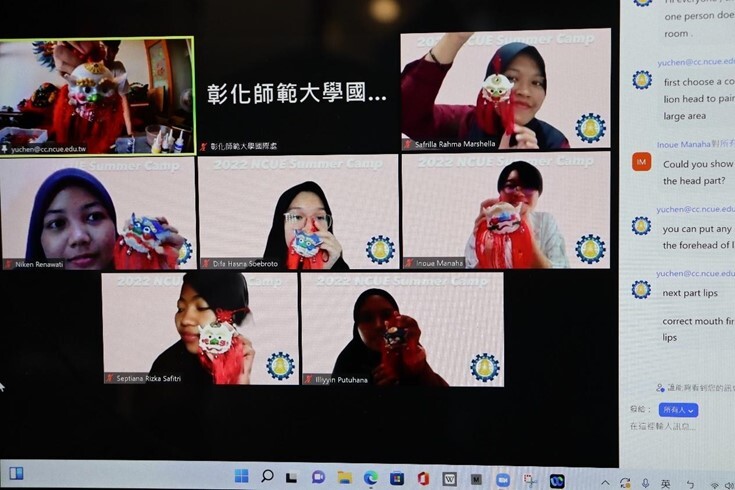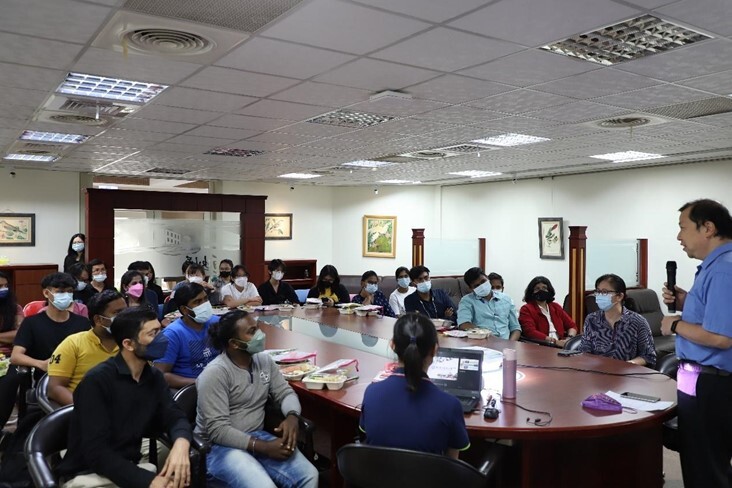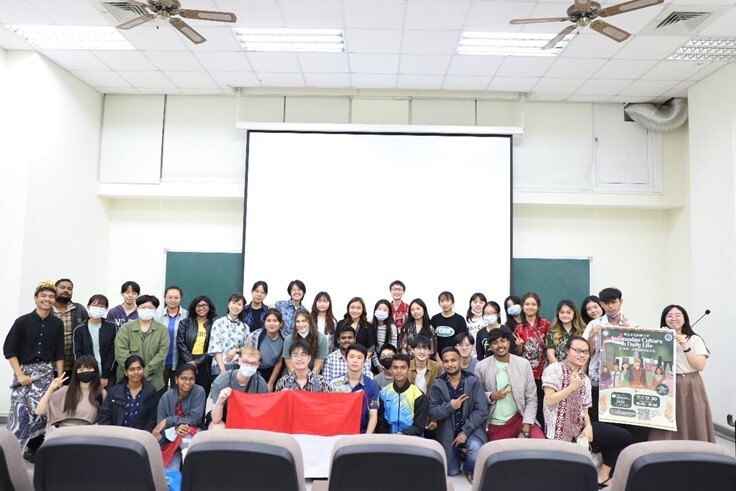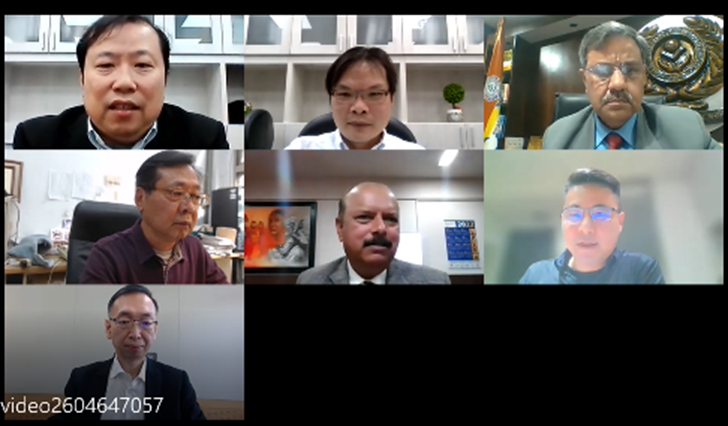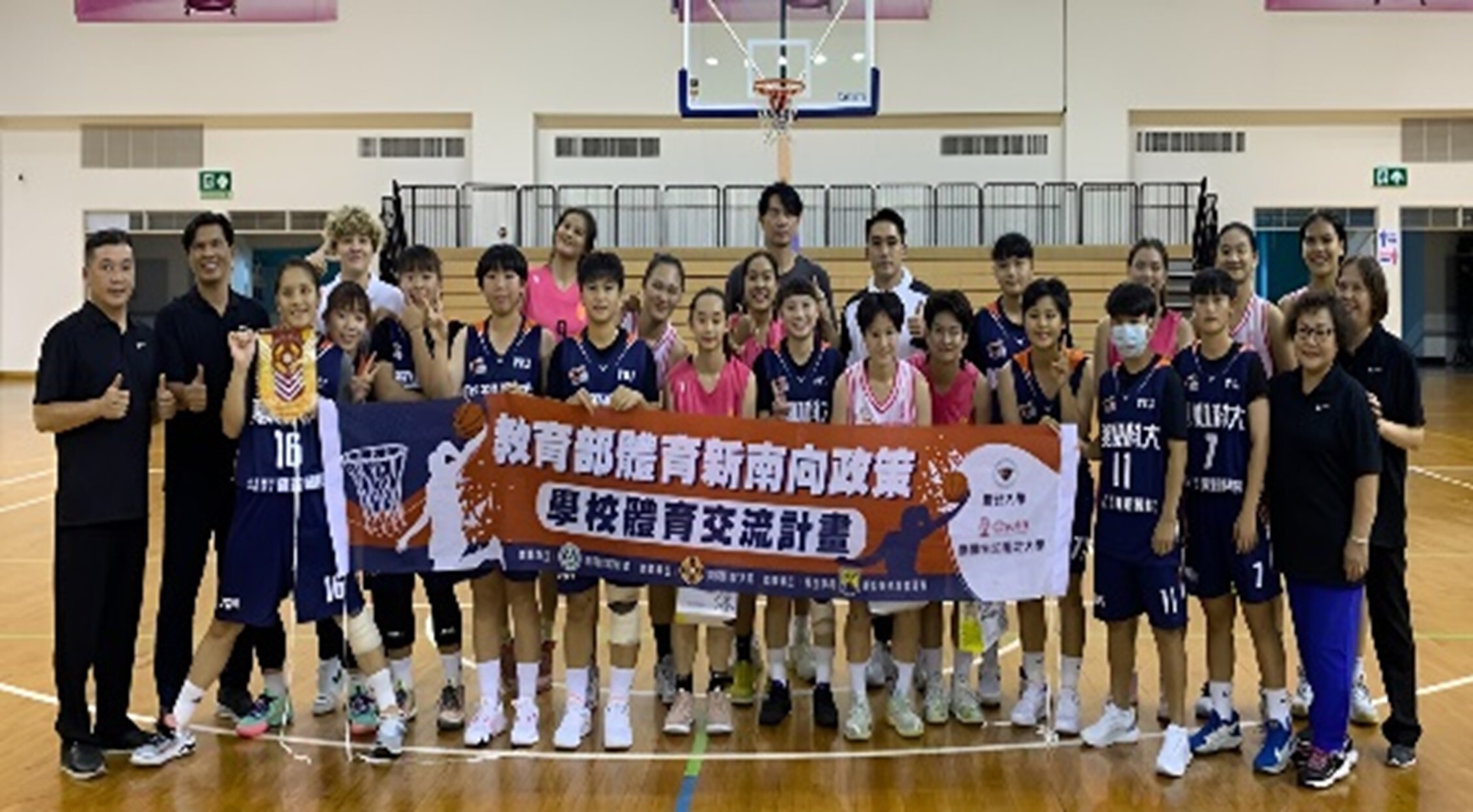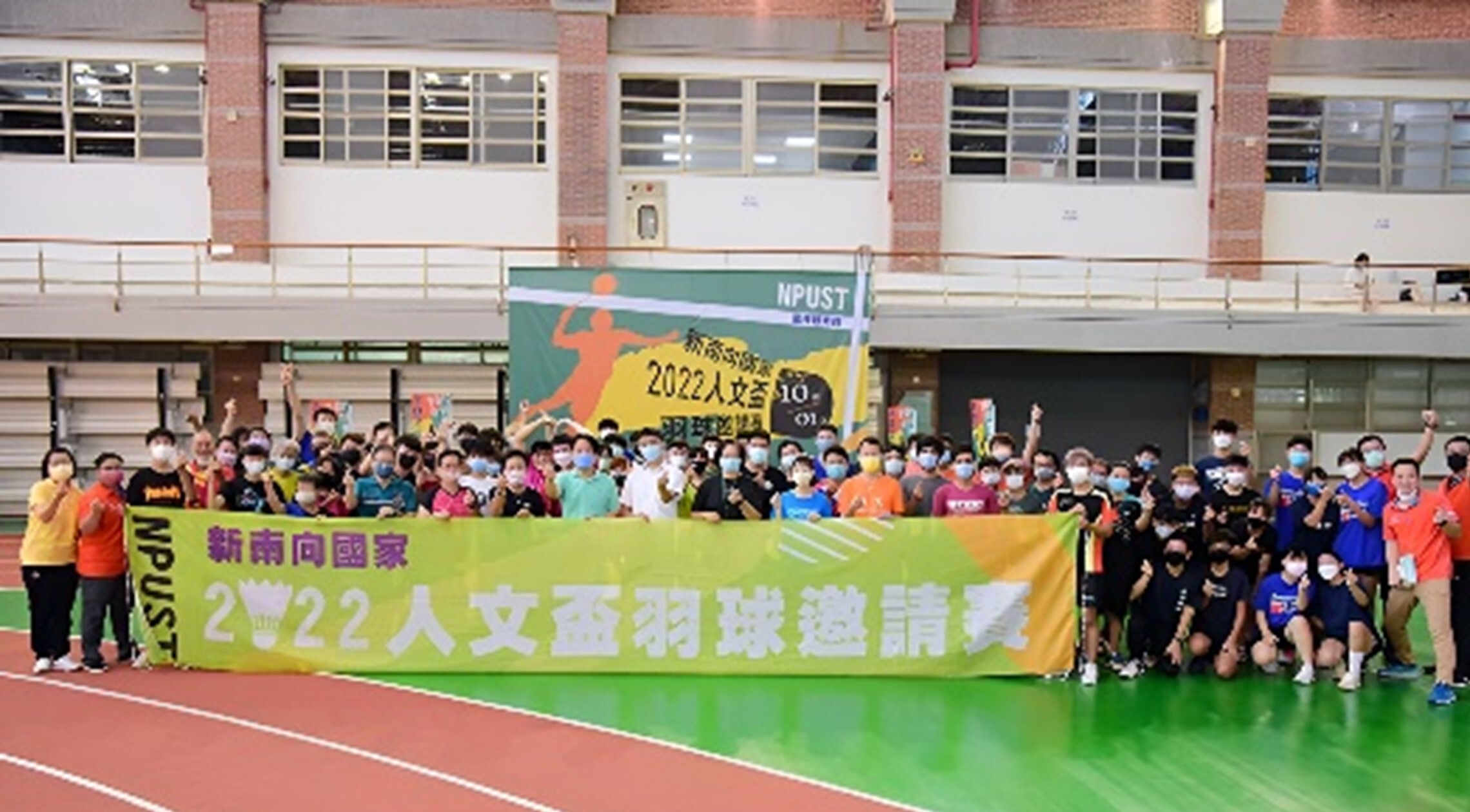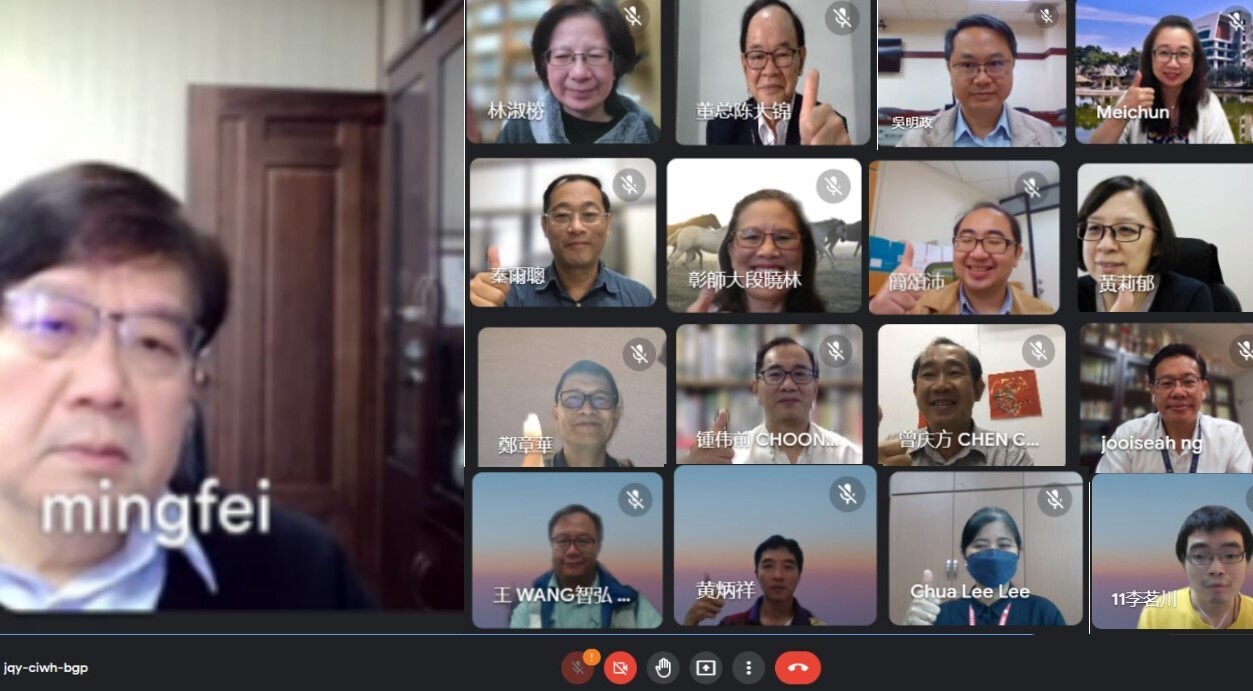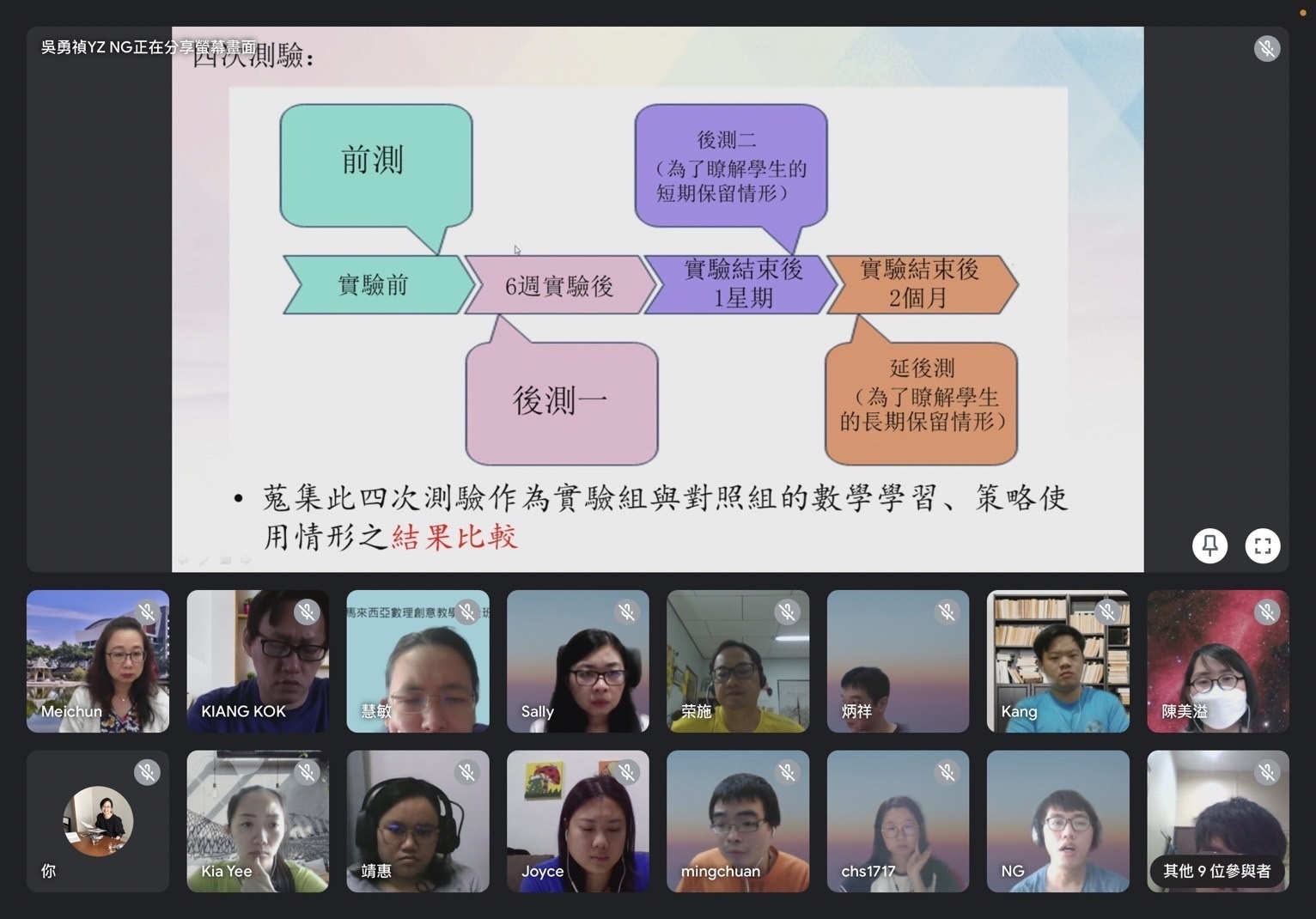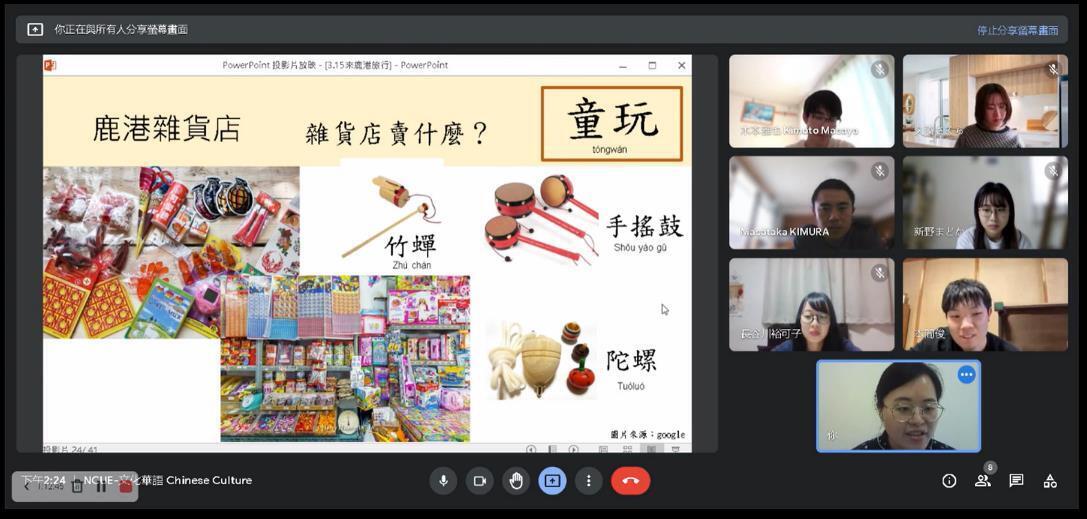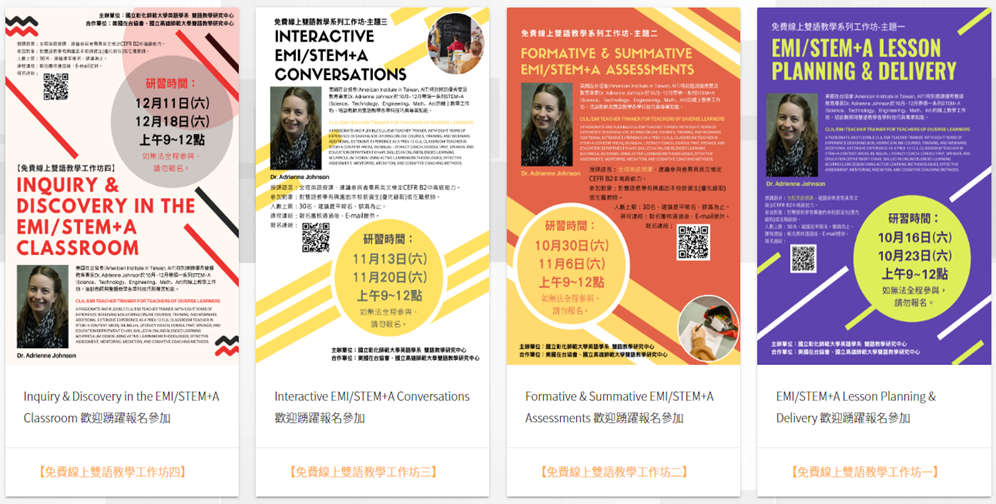SDG 17.2.4 Collaboration for SDG best practice
NCUE actively organizes international exchange activities related to the SDGs goals within the school. Relevant administrative units or teachers guide students to promote the implementation of sustainable development goals and policies by participating in various international collaboration and exchange efforts, courses, activities, and training camps. The five international exchange activities in 2022 are summarized as follows:
1. Dean Hon-Man Lee of the Office of International and Cross-Strait Affairs has continued to lead his team to promote collaboration and exchange programs with developing countries, using our competitive teaching and research resources to facilitate international exchanges, and fulfilling the visions of mutually beneficial talent cultivation and regional economic development. Actions of various sub-projects include Subsidies for tuitions and fees, accommodation discounts, and internship opportunities for students from those countries; experiencing courses in engineering disciplines and classes or activities involving local culture; Southeast Asian language and culture learning programs to promote cultivation of academic, cultural and international trade talents involving the ASEAN and South Asia markets, further improving the complementarity in talent and sharing of resources; international seminars to promote experience sharing and dialogues with scholars from Southeast Asian countries; active collaboration with overseas academic institutions to explore new opportunities in the study of related fields. Teachers and students from India, Indonesia, Vietnam, Thailand, Pakistan, Mongolia, South Africa, Iran, Eswatini and Malaysia all benefited from the programs. Figures 1-4 below show the related activities.
|
|
|
|
Figure 1. The OICA organizing an online summer camp |
Figure 2. The dean participating in the seminar attended by students in the Taiwan Experience Education Program (TEEP) for research or internship |
|
|
|
|
Figure 3. The OICA organizing an Indonesian culture-sharing session “Image of Indonesia - Indonesian Culture in Daily Life” |
Figure 4. The OICA and other on-campus academic units such as the College of Engineering, the College of Science, etc. discussing academic collaboration programs with Swami Vivekanand Subharti University, Institut Teknologi Sepuluh Nopember, Universitas Indonesia, Universitas Jambi, and other universities in Indonesia |
SDGs relevance: Reduced Inequalities; Reduced Inequalities; Partnerships for the Goals
2. Professor Chia-Chang Chang of the Graduate Institute of Sports and Health carried out the “New Southbound Policy in Sports - School Sports Exchange Counseling Program” of the Sports Administration under the Ministry of Education. The Program aligned with the talent cultivation promotion policy for the New Southbound Policy of the Sports Administration under the Ministry of Education, which provided guidance for sports teams of schools at various levels visiting and networking with the countries in the New Southbound Policy, and invited sports teams from the countries in the New Southbound Policy to come to Taiwan for sports competitions. The Program aimed to encourage students and teachers with sports expertise in school at various levels to actively participate in international sports affairs and develop international mobility. It was also hoped that the Program could facilitate collaboration efforts in physical education courses and teaching, sports training, and physical education teachers and talent cultivation between domestic schools and those located in the countries related to the New Southbound Policy.
The program approved 794 cases of exchanges, competitions, and visits with countries in the New Southbound Policy. Among them, 7 schools had completed the signing of 13 memorandums of understanding (MOUs) for collaboration and benefitted more than 20,000 people. After the situation of the global pandemic stabilizes, we will continue to forge positive and concrete collaborative partnerships with countries included in the New Southbound Policy to further demonstrate the vitality of Taiwan’s sports communities, and fulfill the United Nations' sustainable development goals. The 2022 implementation results are shown as follows in Table 1, and related Figures as shown in Figures 5-6:
(1)Approval category:
(a)Bilateral communication between school sports teams: Subsidized 46 cases, benefiting 1,345 people.
(b)Bilateral communication and visits between school sports teams: Subsidized 11 cases, benefiting 96 people.
(c)Sports competitions: Subsidized 9 cases, benefiting 1,120 people.
(2)Types and countries of communication: Mostly basketball, badminton, and taekwondo with Thailand, Malaysia and Indonesia.
Table 1. Number of projects carried out and the number of
beneficiaries in 2022 (table shown below)
|
Type |
Number of projects |
Number of students |
|
Bilateral communication between school sports teams |
46 |
1,345 |
|
Bilateral communication and visits between school sports teams |
11 |
96 |
|
Sports competition |
9 |
1,120 |
|
Subtotal |
66 |
2,561 |
Website of the New Southbound Policy in Sports - School Sports Exchange Counseling Program: http://sasportnsp.ncue.edu.tw/about.html.
|
|
|
|
Figure 5. New Southbound Policy sports competition |
Figure 6. New Southbound Policy badminton invitational tournament |
SDGs relevance: Good Health and Well-Being; Quality Education; Partnerships for the Goals
3. The United Chinese School Committees Association and our school jointly held the 2nd Master of Mathematics and Science Creative Teaching Continuing Education Outside Malaysia online opening ceremony on March 9, 2022, to welcome 23 teachers from the Chinese Independent High School in Malaysia to be our new students. Interdisciplinary learning and the integration of technology into teaching are the new directions for the current development of the Independent High School. It is hoped that the new students can take innovative and interesting science and math education available at our Graduate Institute of Science Education to enhance their professional knowledge, creative teaching, and research capabilities, and integrate their local math and science education and Taiwan’s resources into education to further bring new and international perspectives to the Chinese Independent High School. Figures 7-8 below show the related activities.
|
|
|
|
Figure 7. Master of Mathematics and Science Creative Teaching Continuing Education Outside Malaysia online opening ceremony |
Figure 8. Class records of the first course “Monograph on Science Education” |
SDGs relevance: Quality Education; Partnerships for the Goals
4. Online Chinese language and culture camp in Japan: The students mostly came from Niigata University and Aichi University of Education. The courses included Chinese language, cultural Chinese language, and performance in Chinese. The availability of online courses enabled students to learn cooking, hand-made paper spinning tops, and other courses even when they were in Japan. The courses also included study buddy activities and one-on-one Chinse tutoring to help students improve their Chinese language application skills in a fun way. Students at our school could also take this opportunity to have cultural exchanges with international students to develop perspectives of cultural diversity and prepare themselves for globalization. Figure 9 below shows the camp activities in progress.
|
|
|
Figure 9. Cultural Chinese introducing Taiwan’s traditional children’s toys |
SDGs relevance: Quality Education; Partnerships for the Goals
5. Our Bilingual Education Research Center and the American Institute in Taiwan (AIT) have worked together to offer free online bilingual teaching workshops. In response to the Bilingual 2030 Policy and the market needs, we invited the bilingual education expert Dr. Adrienne Johnson to coach a series of 2021 STEM+A online teaching workshops in English, in order to train teachers and trainee teachers to conduct classes of various subjects and professional knowledge using both Chinese and English. Figure 10 below shows the poster.
|
|
|
Figure 10. Free online bilingual teaching workshops |
SDGs relevance: Quality Education; Partnerships for the Goals

